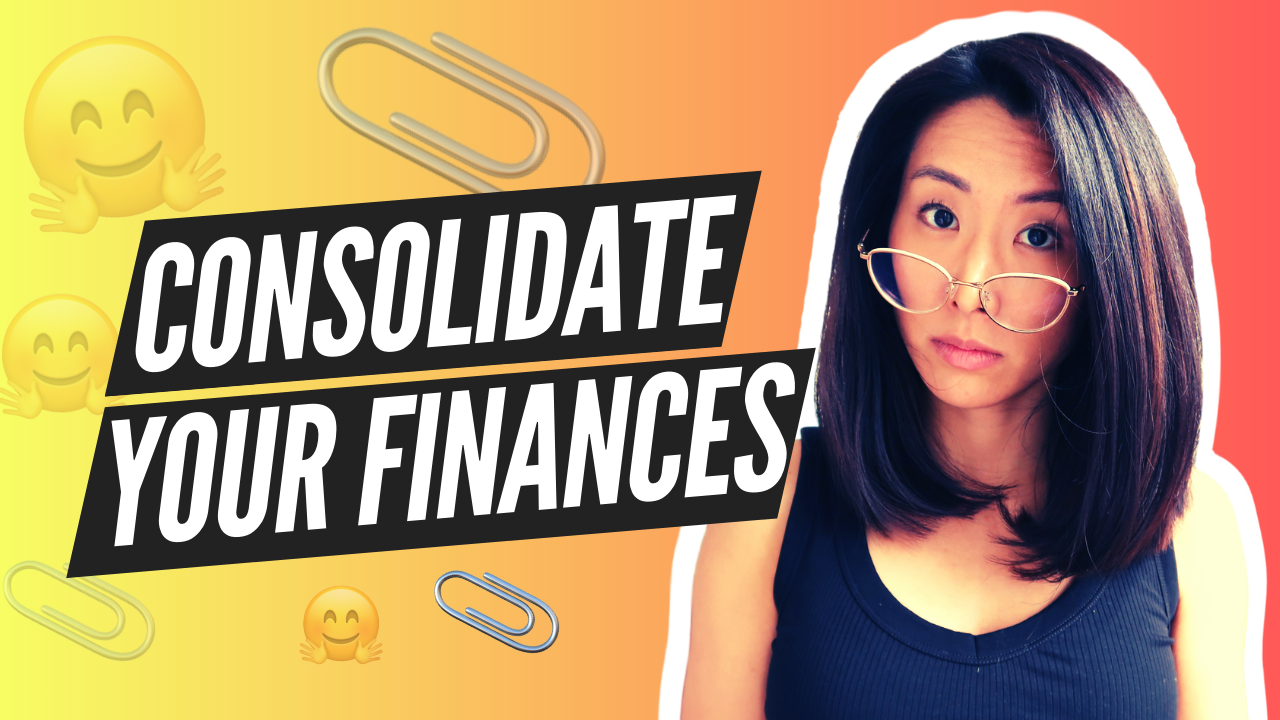Reduce your taxable income in 2019. With tax season just around the corner, you realize how much of your income goes towards taxes… ouch! In this video, I explain 6 tax loopholes that will help you reduce your taxes. I show you some easy ways to avoid taxes (legally!). Tax laws are structured wayyyyyyy in favor of investors, and you can take advantage of these rules even if you don’t have a ton of money to begin with. Using these tax loopholes will stack the odds in your favor and make the system work FOR you versus against you. Watch the video or keep reading!
Keep more of what you make
I used to pay at least half of what I made in taxes to the government, but now, I pay a fraction of what I used to – just by tweaking a few things. So in this post, I’ll explain 6 investing tax loopholes that will help you reduce your tax bill so you can keep more of what you make… legally.
The bottom line is, if you want to pay less in taxes, you have to reduce your “income”. The best way to do this is to quit your job, not make any money, and live off food stamps. Just kidding! (haha)
But seriously, if you want to pay less taxes, you have to lower the income that the government views as taxable. This doesn’t mean making less money – it just means you need to switch over to certain types of income that AREN’T taxable. This is called tax-exempt income. The more tax-exempt income you have vs. not tax-exempt income, the less taxes you’ll pay.
You also want to maximize your tax deductions. These are certain expenses you can report that reduce your taxable net income. The more tax deductions you take, the less taxes you’ll pay.
Did you know that Warren Buffett pays less taxes than his secretary? That’s because a lot of his income is tax-exempt AND he takes a lot of tax deductions. It might seem unfair, but tax laws are skewed way in favor of investors and business owners. That’s why I want you to start investing your money too! Although we can’t all be like Warren Buffett, there are a lot of ways to reduce your tax bill, even if you don’t own a business or have a lot of money.
1. 401(k)
The easiest way to reduce your taxes is by putting money away into a 401(k). In general, you owe taxes on everything you make, as SOON as the money comes through the door. But with a 401(k), the IRS let’s you contribute a chunk of your paycheck to it FIRST, and THEN they’ll charge you taxes on whatever’s left. The end result is that you pay taxes on a much smaller amount, AND you get to save & invest with tax-free earnings.
Here’s an example:
- Let’s say your salary is $5000 a month. You decide to save $500 every month into your 401(k), which lowers your taxable income to $4500. If your tax rate is 40%, then instead of owing $2000 you’ll only owe $1800. That’s $200 that stays with YOU instead of going to the government.
- Plus you’ll be really happy with yourself for building up a nest egg in your 401(k). You’ll be able to save your money SO much faster in a 401(k) account. Especially if your employer offers to match your contributions dollar-for-dollar. That’s basically free money that is ALSO tax-free. Hell yeah! I’m ALL over that.
FYI 401(k)s are meant to help you save for retirement, so you generally can’t touch the money until you turn 59.5. And you can only open a 401(k) if you work for an employer that offers one. So if you don’t get a 401(k) through work OR you’re self-employed (like me!), this next tip is for you.
2. SEP IRA
The SEP IRA is the equivalent of a 401(k), and it’s for all you freelancers, self-employed peeps, and business owners. It lets you put away up to 25% of your net income into a tax-free investment account. This saves me at least $2000 in taxes every year, plus it motivates me to save for retirement.
I’ve talked to WAY too many freelancers and independent contractors who don’t know about this tax loophole, and this is a HUGE MISTAKE. If you’re self-employed, definitely look into SEP IRAs. It’s like… why pay any more taxes than you need to? So if there’s only ONE thing you take away from this video, it’s this…. OPEN A SEP IRA!!!
3. HSA
This one’s my FAVORITE. An HSA is a lot like a 401(k) or SEP IRA, in the sense that any contributions you make to it immediately reduces your taxable income. HSAs allow you to pay for qualified health-related expenses with tax-free money, and you don’t have to wait til you’re retired to spend it! So HSAs are amazing because you can reduce your healthcare costs AND reduce your taxes. I use my HSA to pay for my contact lenses, acupuncture visits, and you can even use it for massages if you get a prescription from your doctor.
By the way, not everyone is eligible to open an HSA. Because it’s such a juicy hookup by the IRS, you’re only allowed to have one if your health insurance is a high-deductible plan (i.e. low monthly payments but higher out-of-pocket expenses). Having an HSA-enabled plan makes a lot of sense for you if you’re pretty healthy, you hardly ever visit the doctor, but you want a tax-savvy way to cover your medical expenses when you need it.
4. Munis
Now let’s talk about some ways to make tax-free income! Municipal bonds or “munis”, are bonds issued by local governments – such as cities, counties, and states – to fund things like infrastructure and water projects. The best way to invest in munis is through municipal bond funds, which are funds that hold hundreds of bonds from hundreds of different municipalities. This helps you diversify and spread out your credit risk.
Short-term municipal bond funds can be a relatively safe place to park your cash while earning some tax-free interest. As of today – March 2019 – you can expect to make a yield of around 1.65%, which doesn’t sound like much, but if you factor in the tax benefit, you get a tax-equivalent yield of about 2.50%. Of course – this is NOT a recommendation to buy, as municipal bonds do have their risks, but if you want to do more research on this, check out VMSXX or VWITX.
5. 1031 Exchange
If you own rental property or you want to own rental property one day, this one’s for you. Real estate tends to go up a lot in value, which is great but you have to pay major taxes on the gains if you were ever to sell. With capital gains tax at 20%, we’re talking a big chunk of change when it comes to real estate. But Uncle Sam has structured the tax law in such a way that you could get away with never paying the tax on your real estate gains for the rest of your life. This is 100% legal, through something called a 1031 exchange.
In a 1031 exchange, you pay zero taxes on the gains when you sell your investment property, as long as you roll over your profits into a new property of equal or higher value. This is basically a tax break offered by the government to help you grow your real estate portfolio. Think about it, normally when you sell you have to pay full capital gains tax on any profits you’ve made. If you reinvested that money into something else, you’d have 20% less buying power because you had to pay your taxes.
But in a 1031 exchange, you could sell your property and pocket all the gains without having to pay any taxes on it, as long as you reinvest it into a new investment property. People do this all the time, trading in a duplex for a triplex, and then trading that in for a multifamily building, and then trading that in for an apartment building, and so on and so forth. There’s definitely a lot of advantages to investing in real estate, and this tax loophole is one of them.
6. Roth IRA
This is a good one too. Roth IRAs are another way to avoid paying taxes on your investments. Any stocks, bonds, or assets you hold in your Roth IRA can grow tax-free until you retire. And when you retire, any income you get or withdrawals you make from your Roth are tax-free as well. So for anything you buy inside of a Roth IRA, you’ll never have to worry about taxes again. A key feature of Roth IRAs is that there is no immediate tax savings today (because any money you put into it has to be with your after-tax earnings), but you get huge tax benefits on the back end when you retire. All your gains, dividend payments, and interest income from your investments will never ever be subject to taxes for the rest of your life. A great combination is to have a 401(k) + a Roth IRA, or for us self-employed folks, a SEP IRA + a Roth IRA. Maxing out your contributions to both would mean you’re saving as much as possible for retirement AND not paying any more in taxes than you need to.
Now I want to hear from you!
Which is your favorite investing tax loophole and why?
Let me know in the comments below!
That’s it for today. Thanks for stopping by! Please share this post with your friends – sharing is caring so let’s empower as many of our sisters as possible with financial literacy. Make sure to join my email list, and always remember to live life on YOUR terms. Cheers!






